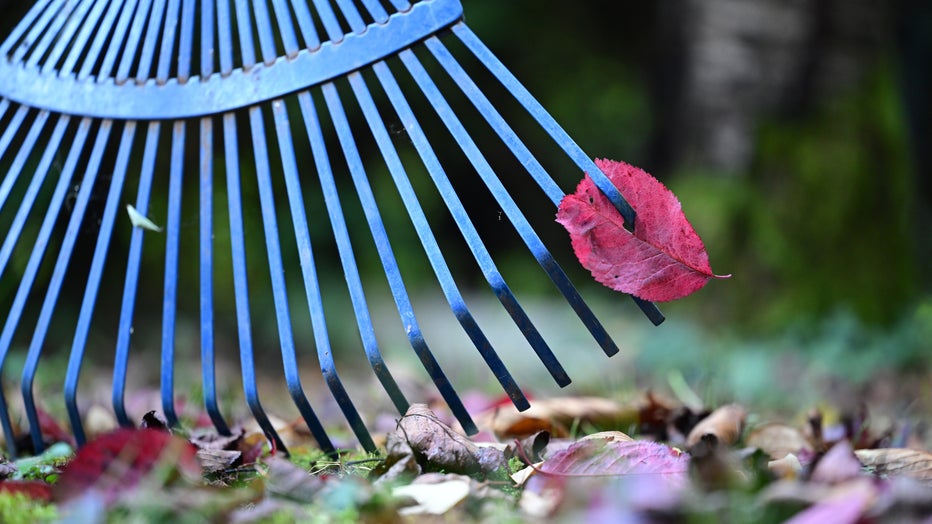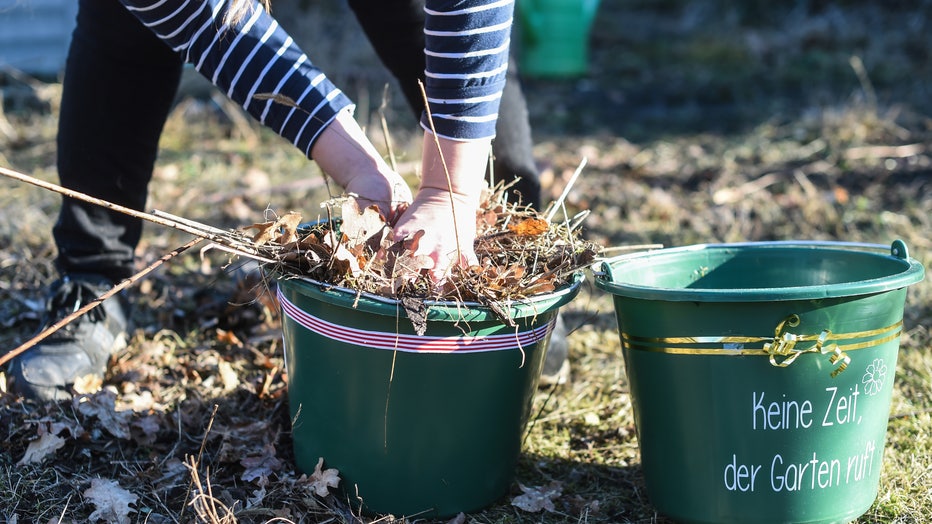Don't bag your leaves this fall, experts say: Do this instead

Moose frolic in Colorado lake surrounded by colorful fall leaves
Moose were spotted frolicking in a lake near Steamboat Springs, Colorado, in early October amid vibrant fall leaves. (Credit: Scott Przymus via Storyful)
Before you break out the rake and plastic bags to rid your yard of fallen leaves this autumn, experts hope you’ll consider leaving them on the ground instead.
According to the University of Delaware’s College of Agriculture and Natural Resources, fallen leaves are full of essential nutrients that help with soil rejuvenation. Bagging them not only takes away those nutrients, it also increases their chances of ending up in a landfill or alternative disposal site.
"Recycling leaves offers a great alternative to the environmental and economic expense of removing this resource from your property," according to the university.
Why you should recycle leaves

(Photo by Bernd Weißbrod/picture alliance via Getty Images)
The college says an estimated two tons of leaves will fall on one acre of temperate forest each fall, "beginning the cycle in which those nutrients are taken up by the trees to manufacture a new crop of leaves the following spring."
READ MORE: These 21 species have been declared extinct, the U.S. Fish and Wildlife Service says
Wildlife also use the leaf litter as a habitat and a place to forage for insects, spiders, slugs, turtles and small mammals. And with the abundance of nutrients left on the ground, you won’t need to buy as much commercial fertilizer. That will both save you money and reduce the potential for commercial fertilizer to end up in water sources.
How to recycle leaves
The University of Delaware offered the following tips for recycling your fallen leaves:

(Photo by Kira Hofmann/picture alliance via Getty Images)
Mow them and leave them where they are: If the leaf layer is less than one inch, let it dry as much as possible then use a lawnmower to break down the leaves. The small particles will decompose without suffocating the grass.
If the leaf layer is higher than one inch, experts recommend shredding them and using them as mulch. You can do that with a bag attachment on your lawn mower and running over the leaves. You can also rake them into a pile and mow over them several times. Be sure to empty the bag frequently into a wheelbarrow or something similar.
READ MORE: Too Good to Go app sells day-old food at steep discount to fight waste
A vacuum shredder will collect and shred leaves, too, for a fine mulch, but only with dry leaves. A string trimmer dipped into a sturdy garbage can filled with dry leaves will also do the trick.
"Shredded leaf litter makes fantastic natural mulch that will suppress weeds, regulate soil temperature, conserve moisture, reduce soil erosion and compaction, and decompose over time to provide nutrients," experts from the University of Delaware said.
Plant specialists say you can also shred leaves and till them into soil, "improving drainage as well as adding nutrients," or spread them over your garden beds and till them before spring planting.
Leaves also make for "fabulously rich" compost, but shred them first, experts say.

